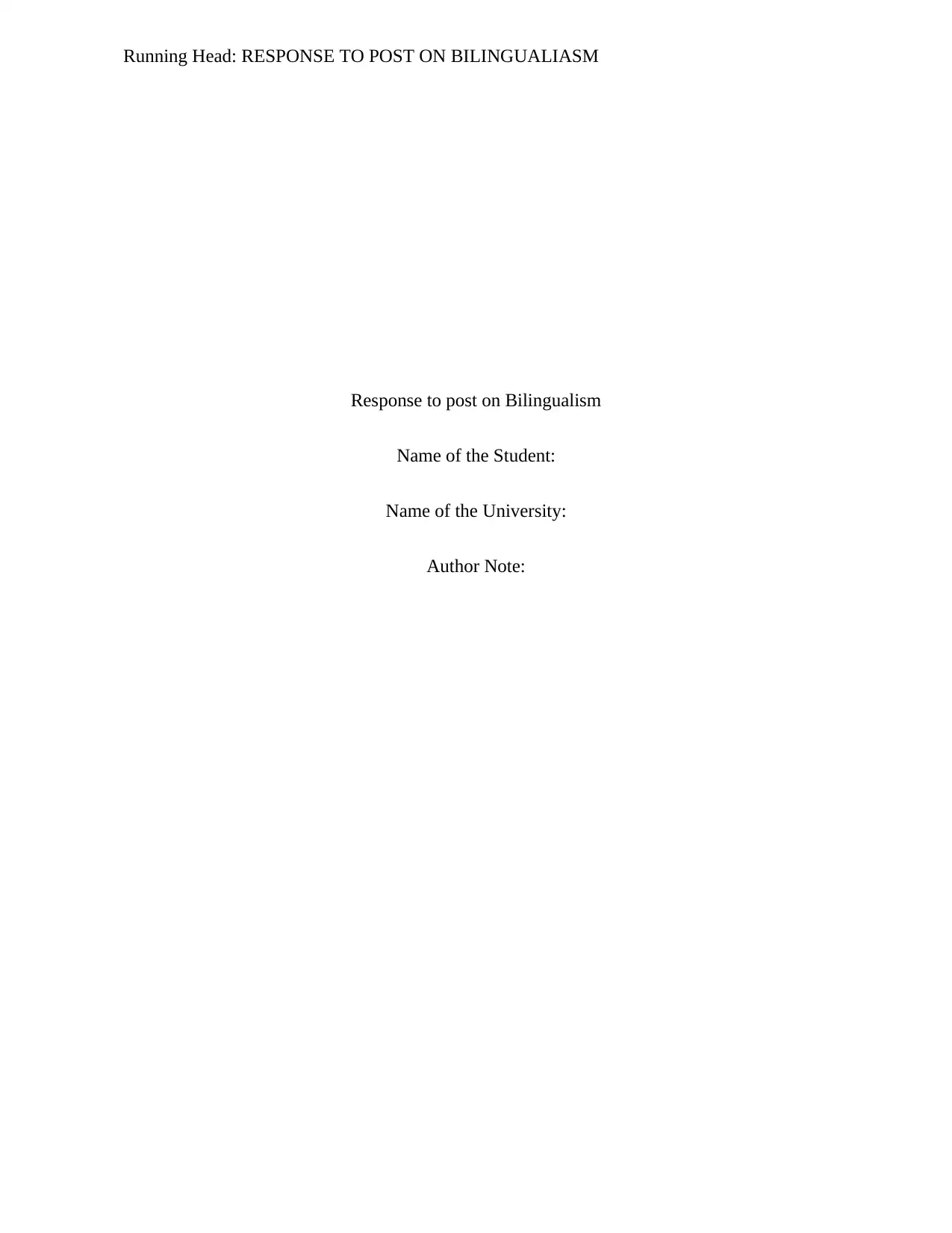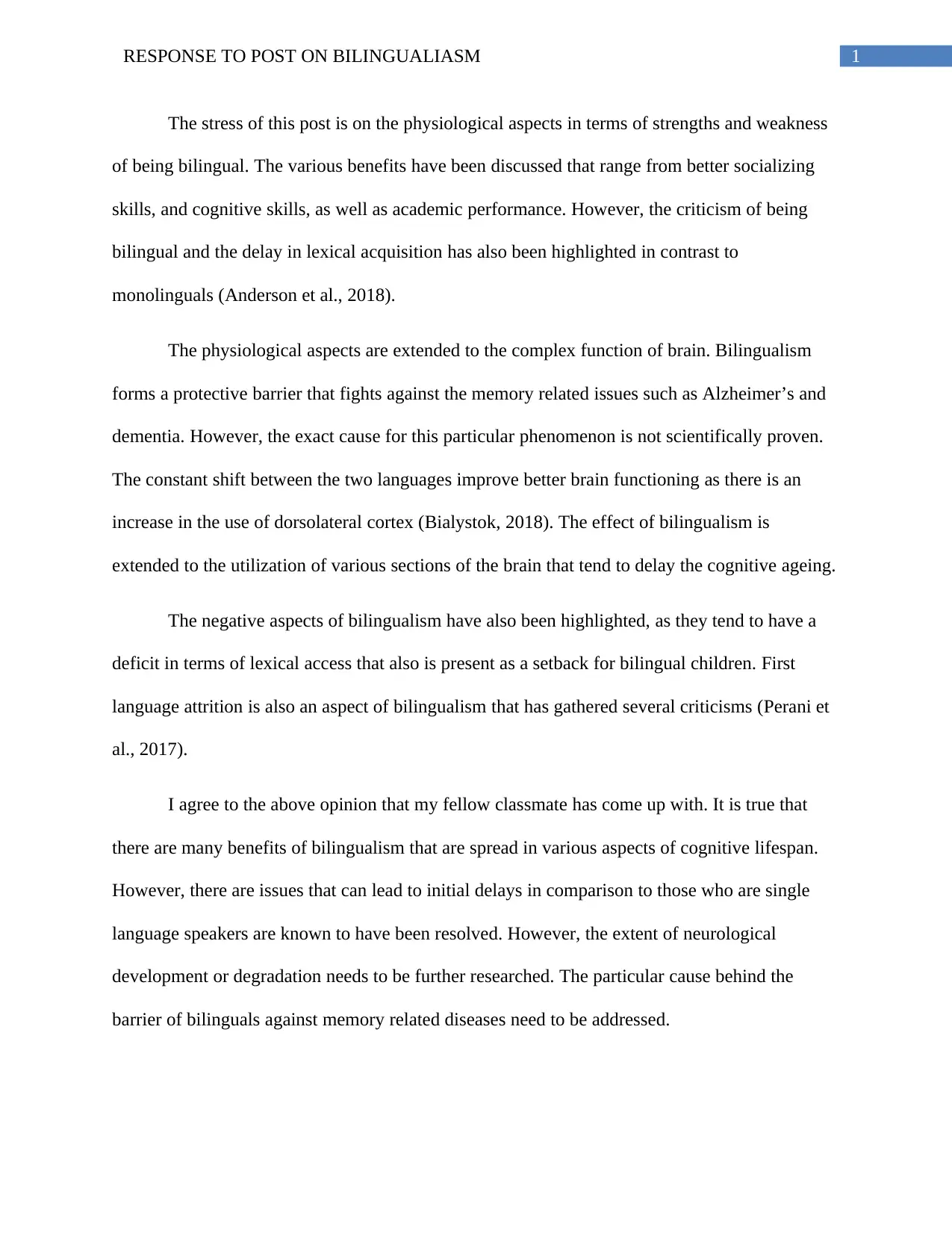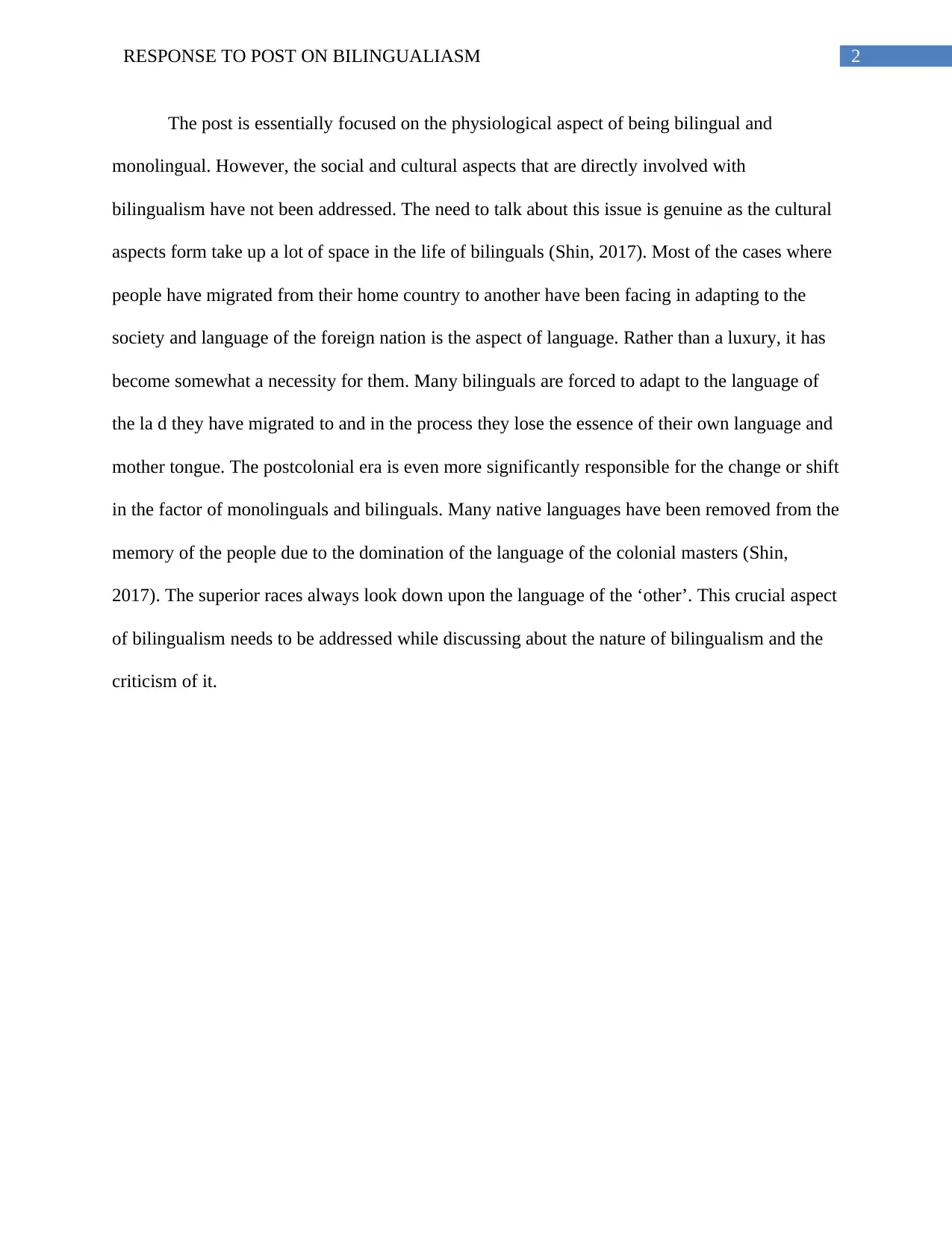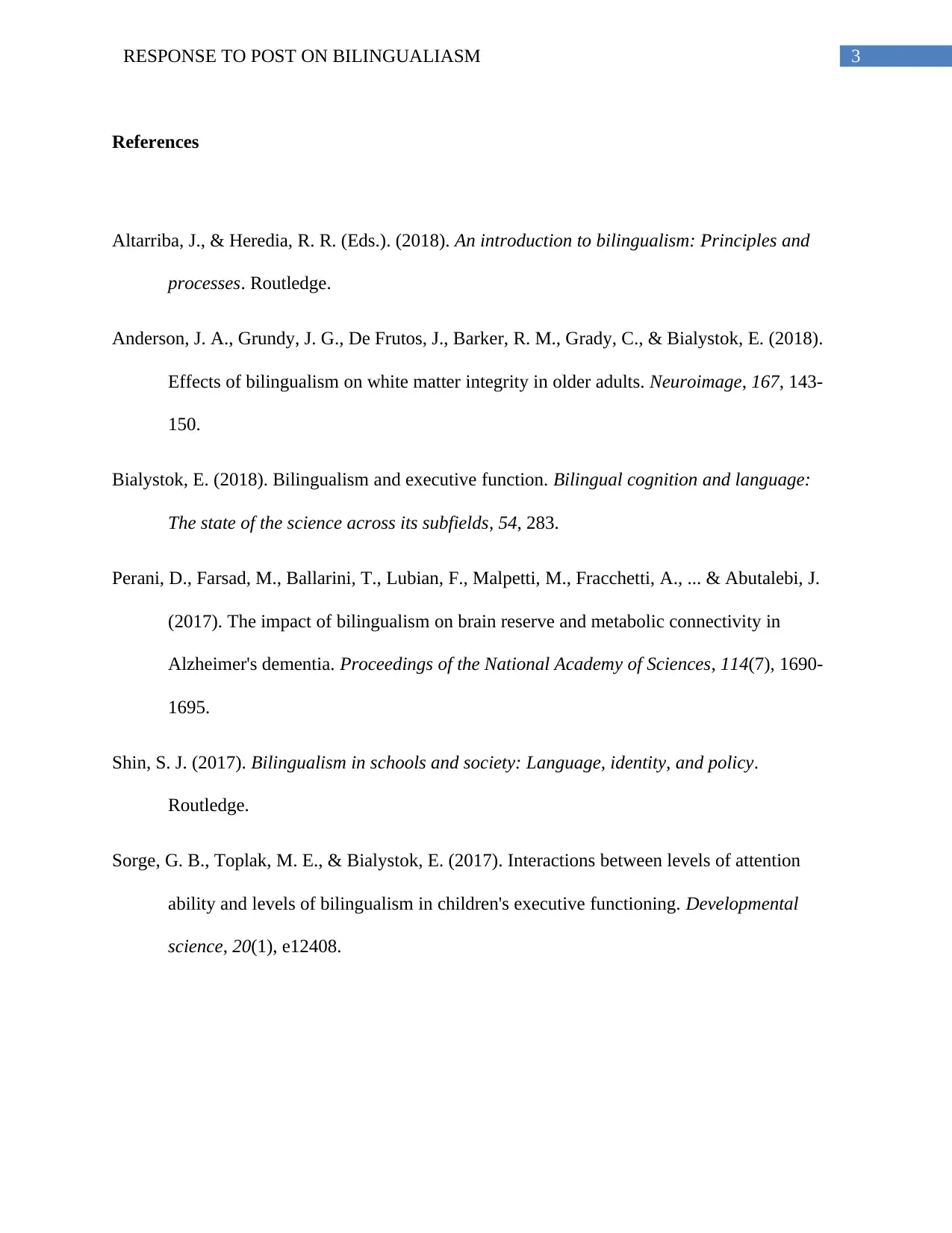Discussion Response: Physiological Aspects of Bilingualism Analysis
VerifiedAdded on 2022/08/21
|4
|838
|13
Discussion Board Post
AI Summary
This assignment is a response to a discussion post concerning bilingualism, focusing on the physiological aspects, cognitive benefits, and criticisms associated with it. The student agrees with the classmate's assessment, acknowledging the advantages in cognitive lifespan, social skills, and academic performance. The response highlights the protective effects of bilingualism against memory-related diseases like Alzheimer's and dementia while noting the lack of scientific consensus on the underlying mechanisms. It emphasizes the increased use of the dorsolateral cortex in bilinguals, contributing to enhanced brain function. The response also critiques the discussion's omission of cultural and social aspects, particularly the challenges faced by bilinguals in adapting to new cultures and languages. The student underscores the impact of postcolonialism on language loss and the need to address the societal perceptions of different languages. The assignment refers to several academic sources to support the arguments.
1 out of 4





![[object Object]](/_next/static/media/star-bottom.7253800d.svg)